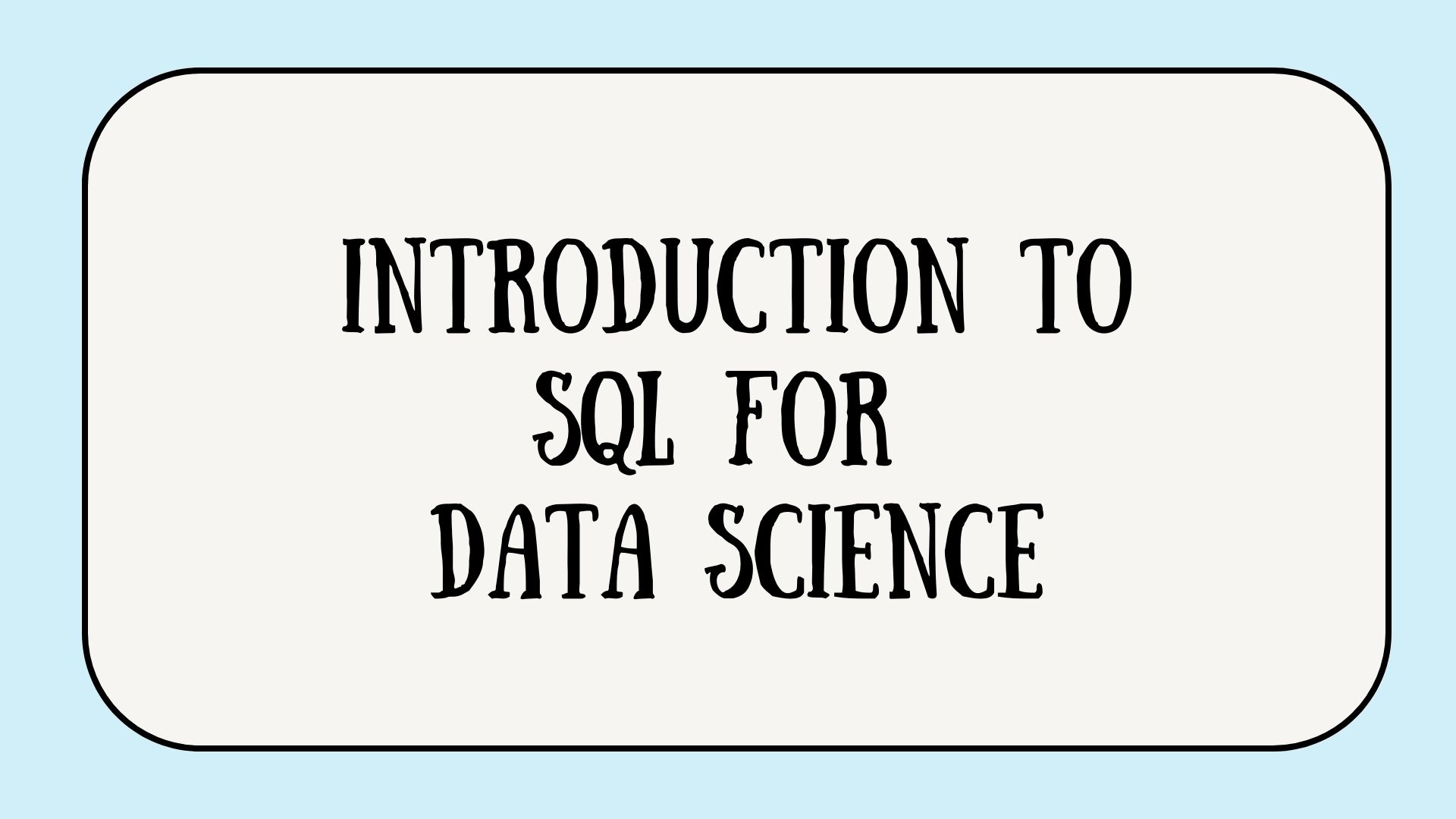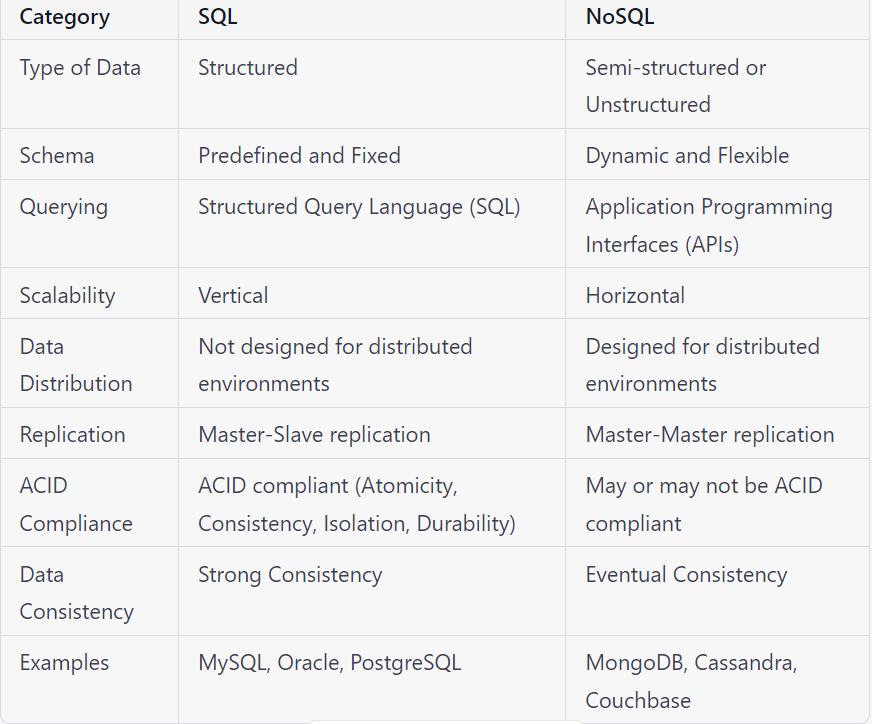Introduction to SQL

Introduction
In the world of data science, extracting valuable insights from vast amounts of data is crucial. SQL (Structured Query Language) is a powerful tool that allows data scientists to efficiently manage, analyze, and manipulate data. Whether you're new to data science or looking to enhance your skills, understanding SQL is essential.
In this blog post, we'll see a comprehensive introduction to SQL for data science, exploring its key concepts, syntax, and its importance in data manipulation.
What is SQL?
SQL, or Structured Query Language, is a programming language designed specifically for managing and manipulating relational databases.
It serves as the standard language for interacting with relational database management systems (RDBMS) such as MySQL, PostgreSQL, Oracle, and Microsoft SQL Server. SQL provides a structured and efficient way to store, retrieve, update, and delete data from databases, making it a fundamental skill for data scientists.
Key Concepts in SQL:
Databases and Tables
- Databases are containers that hold related data, while tables organize data into rows (records) and columns (attributes).
- Each table consists of a unique name and a defined structure, specifying the data types and constraints for each column.
Queries
- SQL queries allow you to retrieve specific information from databases.
- The SELECT statement is the core of SQL queries, used to fetch data based on specified conditions and retrieve desired columns.
Data Manipulation
- SQL provides powerful commands for manipulating data.
- INSERT allows you to add new records into a table.
- UPDATE modifies existing records.
- DELETE removes specific records from a table.
Filtering and Sorting
- WHERE clause enables filtering data based on specific conditions, allowing you to extract relevant information.
- ORDER BY clause arranges the retrieved data in ascending or descending order based on specified columns.
Aggregation
- SQL offers several aggregate functions like SUM, AVG, MIN, MAX, and COUNT to perform calculations on groups of data.
- GROUP BY clause groups data based on specified columns for aggregation.
Joining Tables
- SQL allows you to combine data from multiple tables using JOIN operations.
- INNER JOIN retrieves matching records between tables, while OUTER JOIN retrieves matching records and non-matching records as well.
Advanced Concepts
- SQL includes advanced concepts like subqueries, views, and stored procedures, which enhance the capabilities of data manipulation.
Why is SQL Essential for Data Science?
Data Retrieval and Exploration:
- SQL enables data scientists to extract relevant information from databases efficiently.
- It allows exploratory data analysis, helping to understand the data's structure, patterns, and relationships.
Data Preparation:
- SQL plays a vital role in data preprocessing, which involves cleaning, transforming, and organizing data for analysis.
- It allows data scientists to filter, sort, and aggregate data to create the desired datasets.
Data Manipulation:
- SQL provides the ability to update, insert, and delete data, allowing data scientists to perform necessary transformations.
- These manipulations are essential for data cleaning, feature engineering, and creating derived variables.
Integration with Other Tools:
- SQL integrates seamlessly with other data science tools and programming languages.
- It can be combined with Python, R, or other programming languages to enhance data analysis and visualization capabilities.
SQL vs NoSQL: Differences

Conclusion
SQL is a fundamental skill for any data scientist. Its ability to manage and manipulate data efficiently makes it an indispensable tool in the field of data science. By mastering SQL, data scientists can extract valuable insights from large datasets, perform complex data manipulations, and integrate data with other tools for further analysis.
As you continue your journeyin data science, investing time and effort in learning SQL will undoubtedly pay off, enabling you to unlock the power of data manipulation and enhance your data science skills. So, dive into SQL and start harnessing the potential of your data today!